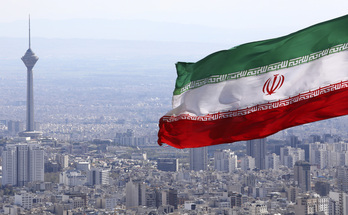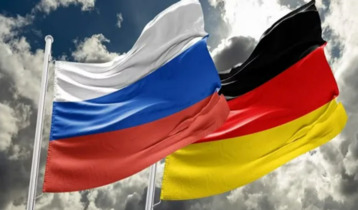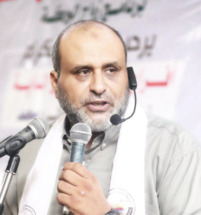-
Facebook accused of failing to combat election disinfo ads in Brazil

A prominent human rights group published a report Monday (August 15) accusing Facebook of failing to combat election disinformation ads ahead of what is expected to be a tense Brazilian election in October, the Anadolu Agency reported.
Global Witness submitted 10 ads in Brazilian Portuguese to Facebook with election disinformation in a bid to "to test whether Facebook was able to detect outright election disinformation as well as it suggests it can," it said.
The organization found that it was able to submit ads from outside of Brazil and fund them with non-Brazilian payment methods.
The report said: "In total, we submitted 10 Brazilian Portuguese-language ads to Facebook – five containing false election information and five aiming to delegitimize the electoral process.”
“Alarmingly," said Global Witness, "all of the election disinformation examples were approved."

The report said: “Given the high stakes nature of the Brazilian election, Facebook is failing in its efforts to adequately protect Brazilians from a disinformation nightmare.”
Ahead of Brazil's vote on Oct. 2, many Brazilian observers have raised concerns following far-right President Jair Bolsonaro’s repeated unsupported claims that Brazil's electronic voting system is vulnerable to fraud.
Facebook accused of blocking Australian health sites
Jon Lloyd, a senior adviser at Global Witness said: “The disinformation that Facebook allows on its platform feeds into the ‘stop the steal’ narrative in Brazil – a growing tactic intended to set the stage for contesting the election and risking similar violence as we saw during the January 6th insurrection attempt in the US.”
Lloyd alleged that Facebook is aware that the social media "platform is used to spread election disinformation and undermine democracy around the world" and called on it to do "better.”
He said: "It’s not enough to say they’ve hired thousands of content moderators and have invested in AI detection – when clearly these safeguards are failing. They need to show their work.”
Russia bans Facebook following war on Ukraine, reports on limiting Twitter
Lloyd added: “Despite Facebook’s self-proclaimed efforts to tackle disinformation – particularly in high stakes elections – we were appalled to see that they accepted every single election disinformation ad we submitted in Brazil.”
João Brant, coordinator of the Desinformante platform in Brazil, argued that "this investigation shows that (Facebook parent) Meta prioritizes its profit over the protection of Global South democracies. The company shows its inability to control the use of its platform to spread fake news, and this has a direct negative impact on our democracy."
Nevertheless, the social media giant has insisted that it has prepared "extensively" for Brazil's election this year.
In a written statement, Meta said it cannot comment on the findings without access to the full reporting.
Facebook announces it will end use of facial recognition software
It said: "We’ve launched tools that promote reliable information and label election-related posts, established a direct channel for the Superior Electoral Court to send us potentially-harmful content for review, and continue closely collaborating with Brazilian authorities and researchers.”
"Our efforts in Brazil’s previous election resulted in the removal of 140,000 posts from Facebook and Instagram for violating our election interference policies and 250,000 rejections of unauthorized political ads. We are and have been deeply committed to protecting election integrity in Brazil and around the world.”
Brazil’s October election will be the first since Bolsonaro took office in January 2019 as fears persist of potential political violence if the results are contested.
Source: aa
You May Also Like
Popular Posts
Caricature
BENEFIT Sponsors BuildHer...
- April 23, 2025
BENEFIT, the Kingdom’s innovator and leading company in Fintech and electronic financial transactions service, has sponsored the BuildHer CityHack 2025 Hackathon, a two-day event spearheaded by the College of Engineering and Technology at the Royal University for Women (RUW).
Aimed at secondary school students, the event brought together a distinguished group of academic professionals and technology experts to mentor and inspire young participants.
More than 100 high school students from across the Kingdom of Bahrain took part in the hackathon, which featured an intensive programme of training workshops and hands-on sessions. These activities were tailored to enhance participants’ critical thinking, collaborative problem-solving, and team-building capabilities, while also encouraging the development of practical and sustainable solutions to contemporary challenges using modern technological tools.
BENEFIT’s Chief Executive Mr. Abdulwahed AlJanahi, commented: “Our support for this educational hackathon reflects our long-term strategic vision to nurture the talents of emerging national youth and empower the next generation of accomplished female leaders in technology. By fostering creativity and innovation, we aim to contribute meaningfully to Bahrain’s comprehensive development goals and align with the aspirations outlined in the Kingdom’s Vision 2030—an ambition in which BENEFIT plays a central role.”
Professor Riyadh Yousif Hamzah, President of the Royal University for Women, commented: “This initiative reflects our commitment to advancing women in STEM fields. We're cultivating a generation of creative, solution-driven female leaders who will drive national development. Our partnership with BENEFIT exemplifies the powerful synergy between academia and private sector in supporting educational innovation.”
Hanan Abdulla Hasan, Senior Manager, PR & Communication at BENEFIT, said: “We are honoured to collaborate with RUW in supporting this remarkable technology-focused event. It highlights our commitment to social responsibility, and our ongoing efforts to enhance the digital and innovation capabilities of young Bahraini women and foster their ability to harness technological tools in the service of a smarter, more sustainable future.”
For his part, Dr. Humam ElAgha, Acting Dean of the College of Engineering and Technology at the University, said: “BuildHer CityHack 2025 embodies our hands-on approach to education. By tackling real-world problems through creative thinking and sustainable solutions, we're preparing women to thrive in the knowledge economy – a cornerstone of the University's vision.”
opinion
Report
ads
Newsletter
Subscribe to our mailing list to get the new updates!






















